Your basket is empty
Already have an account? Log in to check out faster.
Already have an account? Log in to check out faster.
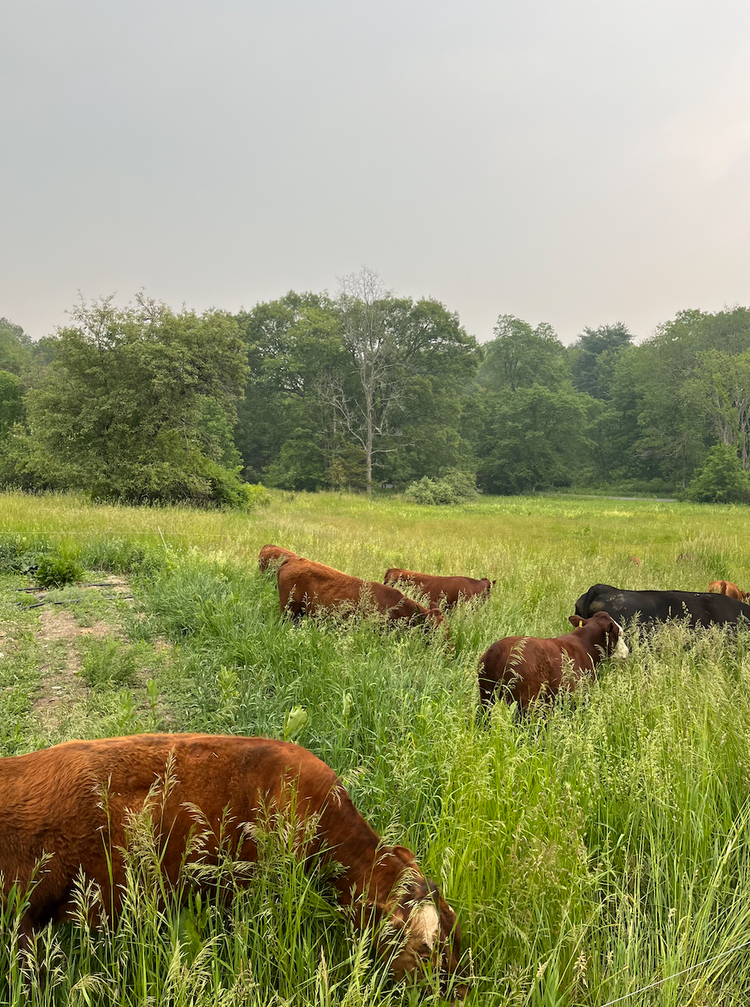
If you read our last newsletter, you heard me discuss some current ecological problems we’re facing, such as drought and forest fires, how we’ve historically dealt with these issues, and some proposed solutions. These past few weeks have had me thinking further into the climate crisis topic, specifically after seeing Ireland’s newly proposed bill to cull 20% of the national herd of this dairy nation. Once again we are making an enemy of natural phenomena, and this time it involves making monumental changes on the backs of the working class.
There has been a shift in what historically has been known as the environmentalist movement within the last decade. A shift so distinct that we actually don’t even describe the same types of people as “environmentalists” anymore— they are now “climate activists”. This subtle yet distinct shift, I believe is extremely noteworthy and displays a greater change in the narrative around responsible stewardship of the earth versus industrial takeover.
The environmentalists have never been perfect, as they’re humans just like the rest of us, but I do think they were on track with identifying the right problems. Problems such as: pollution of the earth, waters, and skies; destruction of native habitats in order to plant a mono-crop of soybeans, corn, etc.; and replacing people with pesticides. I think they were missing a crucial aspect to their messaging, however—what’s good for the planet is ultimately good for people. Not just in the abstract, fear-driven sense we are all accustomed to, but in the here and now. This flips the narrative from seeing ourselves as more or less martyrs for the earth, who will do anything to save it, to simply looking out for humankind in the most holistic sense.
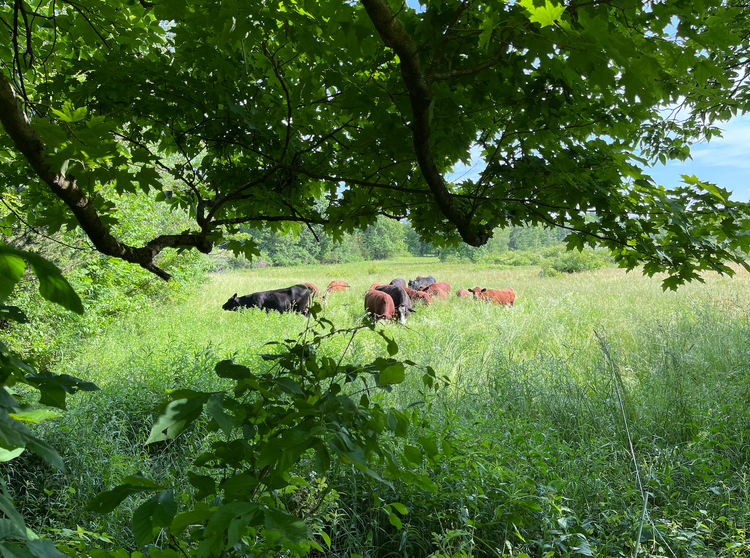
For example, our beef is better than anything you can find in a store, ecologically speaking, but frankly, the ecological benefit comes out of our primary driver of creating food that is better for you and your family now. Customers who transition from store bought meat to ours have reported mysterious benefits from the ending of aches in their back all the way to helping relieve symptoms of their child’s autism. I don’t have any data to back this up, nor would I claim that our products are a direct cause of these changes. However, I will say with confidence that their choice to eat our meat makes a direct impact on our ecosystem here, every bite sinking carbon and methane into our soils. Yet ultimately, they purchase our food because all these benefits of their external environment are also happening in their internal environment.
I am making the case that human beings are inseparable from the planet we rely on and therefore, the products you use and the food you eat that don’t cause endocrine disruptions or carcinogenic effects are also those that don’t leach metals into fresh water fish or deforest the amazon. Human health and planetary health are by-products of one another.
As Ireland ponders the decision over whether to wipe out a fraction of an entire species of animal, we must consider the effects of these decisions, both on the natural world and ourselves. Are cows really as destructive to the environment and human health as they say, or are they an essential component of our lands and diets? Only one of these can be true.
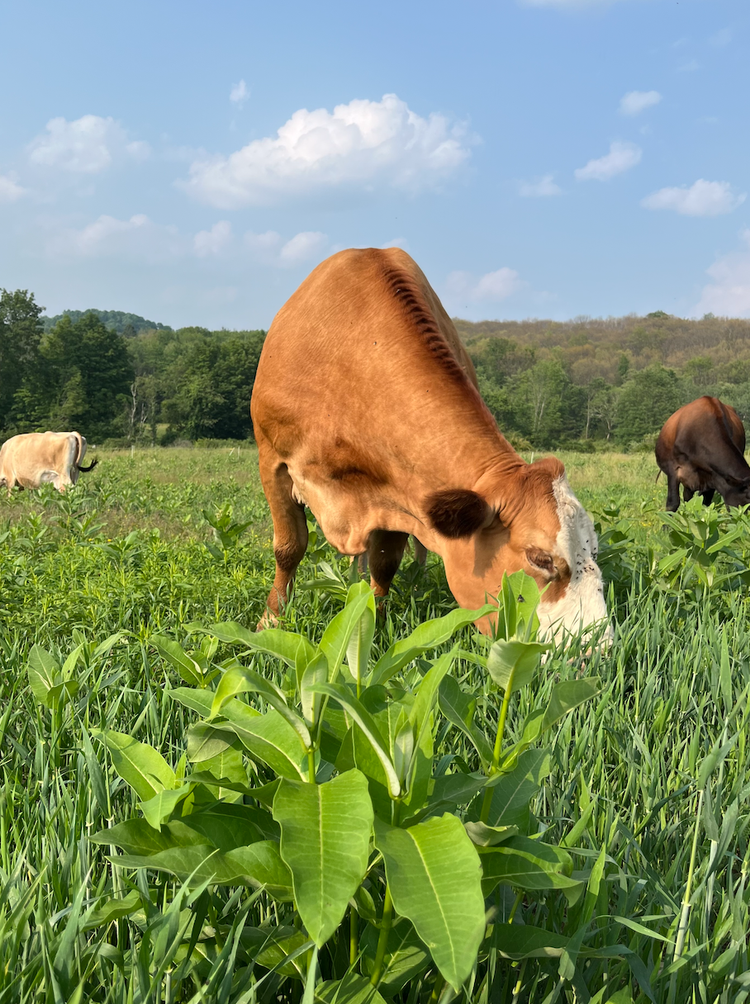 Although it seems like the Irish parliament will not actually pursue this legislation, it is not the first and likely will not be the last proposal of a large cull in effort to mitigate the 11% of greenhouse gas emissions coming from livestock. It is indeed a fact that cattle produce that volume of methane, but the less discussed nuance is that when these animals are feeding on their appropriate food source (grass), those grasslands sequester the same or more methane via soil microbial life.
Although it seems like the Irish parliament will not actually pursue this legislation, it is not the first and likely will not be the last proposal of a large cull in effort to mitigate the 11% of greenhouse gas emissions coming from livestock. It is indeed a fact that cattle produce that volume of methane, but the less discussed nuance is that when these animals are feeding on their appropriate food source (grass), those grasslands sequester the same or more methane via soil microbial life.
But the simplistic model seems to fit well into the minds of the populous: Methane is bad —> Cows make methane —> Kill cows. As writer, Jordan Peterson, pointed out, we think of these things as some sort of sacrifice to the earth who is mad at humanity for eating the food that just happens to be one of the most bioavailable, micronutrient-rich foods on earth.
If the cycle of ruminants maintaining grasslands is negative for our planet then this is a problem as old as time, since this nation we farm in once had at least 60 million bison roaming and migrating through it only 200 years ago. Our country currently maintains a national herd of about 30 million cows, and their progeny. Both bison and cattle release methane as a by-product of their incredible power to turn grass into meat. Why does it seem as though we are going after the one source of emissions that has been in place for millennia and requires no form of a centralized supply chain to produce?
The Irish’s attempt at this type of legislation was not only perceived as an attack on cattle, but also an attack on working class people. Cattle, dairy especially, in the Irish based system is still an economy in which the producers are the owners. This is because pasturing cows, when economics make any sense at all, is the most lucrative, biologically-based system in food production. These family dairies average in size of about 84 cows, and often these farms have been in the same family for hundreds of years. This system has a natural economic limit to prevent consolidation and monopolization because cows need two acres each and can only walk so far from the dairy barn to go graze. It really is that simple. A 200 acre farm that could support 100 cows maxes out there because the furthest paddocks for grazing can be up to 2 miles away, which already is a long journey for cows to make to and from the barn twice a day to be milked.
We often abandon what works in exchange for perceived piety, for the sake of progress, without always a real idea of what exactly we are progressing toward. This is a food production system that has existed for millennia and has withstood the test of time. It is the unspoken hero that brought people through famines and depressions, droughts and pandemics. Yet it is suddenly evil and there is a new hero in town, one who requires petroleum, aluminum, herbicides and synthetic nitrogen to be planted, harvested, cultivated and processed: Plant-based foods— despite the fact that no historic human society has ever eaten a diet devoid of animal products. But alas, march on toward progress. Toward where? We haven’t an idea.
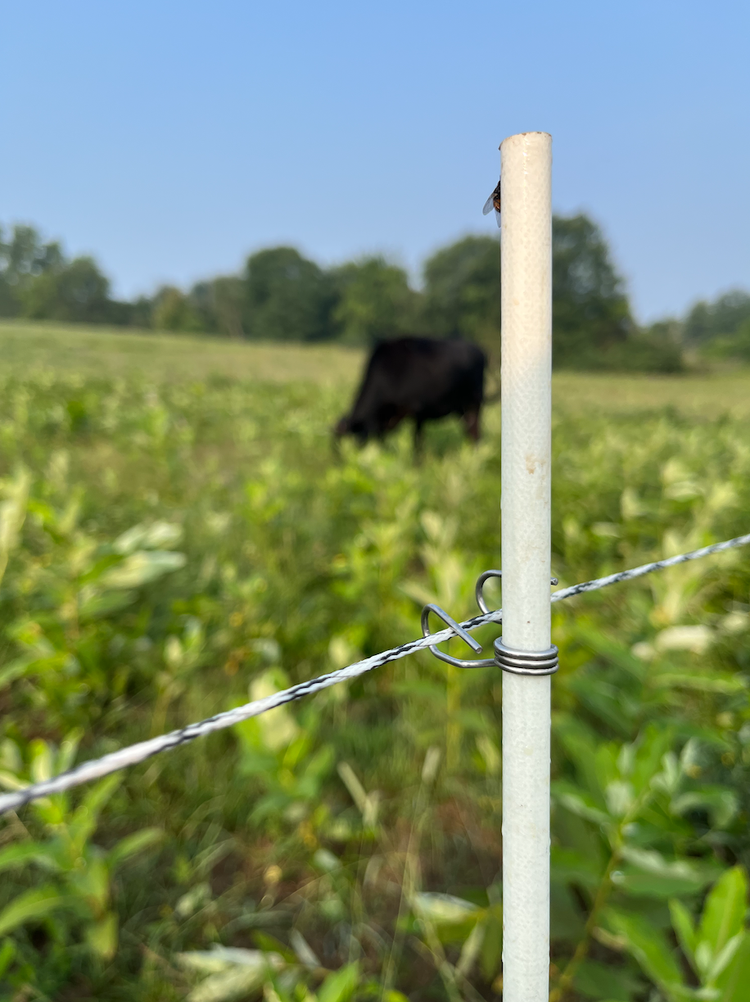
This is progress— using our amazing technology to work within and improve upon natural systems, contrary to the slash and burn way of farming, which creates its own design instead.
Cattle, and other livestock, are sovereign. They rely on nothing other than themselves and those who steward them. They have a direct relationship to their feed that doesn’t involve any inputs other than sunshine, water, and their own manure, all things which are free. This model allows farmers the freedom to own their land, work for themselves and make a livelihood. On the contrary, most farmers today operate on leased land, in facilities that are owned by the bank and on equipment that has brought the average American farmer into 1.3 million dollars of debt. All of this, to grow the plants that are supposed to be the future of our world.
Livestock are what makes farmers producers, turning photons and the natural elements into food, instead of the consumers of tractors, machinery and chemical inputs that the GMO, plant-based farming industry has turned farmers into. You cannot patent the magnificent technology of the rumen, nor can you recreate it (and why would we waste our time trying?). It’s a simple, low overhead way of farming, in a way that may be boring to some (“Where is the progress?!”).
There are no technical solutions to biological problems. Unlike Ireland, our dairy industry is not limited by the logistics of the pasture because we generally don’t pasture our animals here. Notice my case here is not to continue business as usual. A pasture-based organic system is the only one that we can (and always have) safely build society upon and raise healthy children with. All others fail in that they contaminate and destroy the earth we rely upon to sustain us.
Although I am extremely grateful to live a modern life with refrigeration and this magical rectangle we are communicating through, our reductionist mindset can get us in more trouble than we often imagine. This worldview works excellently with complicated things, such as technology and engines, yet it fails to see and operate within complex systems where two plus two sometimes equals 1,000. We can see how applying our principles of tech to biology fails us constantly. From our world’s love story with DDT to how we think we can approach solving the problem of the global heating— we don’t even know how much we don’t know.
What would happen in a world where all ruminants were removed? Does anyone know? I have some guesses, none of which are good. That world has never existed before. Think of our boldness to think we understand the world enough to take out an entire classification of animals because we think a hurricane was caused by their farts. It is the equivalent of thinking we should get rid of entire species of wetland trees because they have also been found to emit methane, but perhaps the craziest part is that scientists are talking about that too. Call me a heretic but am I the only one who wonders if maybe we’re looking at this from the wrong angle?
I am not taking the typical neoconservative approach on this either. I’m not saying everything is fine. When PFAs have contaminated 97% of the well water in the northeast; when all fresh water fish have mercury in them because of our industrial habits; when all modern humans have trace levels of plastic in their bloodstream; everything is not fine. Let’s think selfishly about these environmental problems, because if we do, we can reclaim a healthy ecosystem in the process.
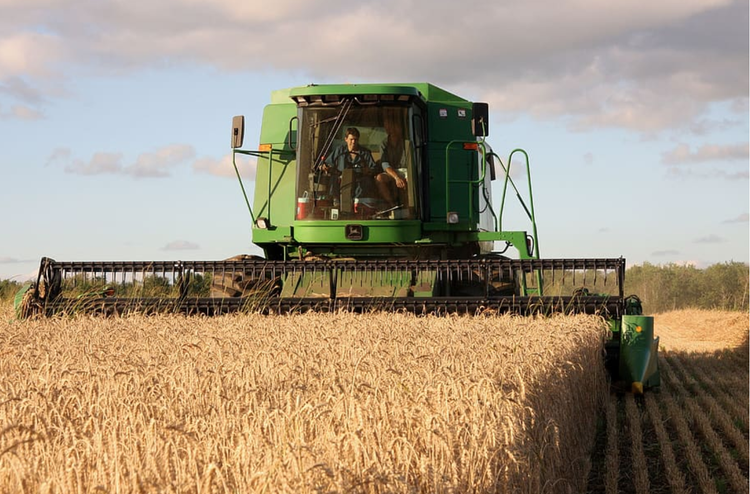
|
A complicated system
|
|
A complex system
|
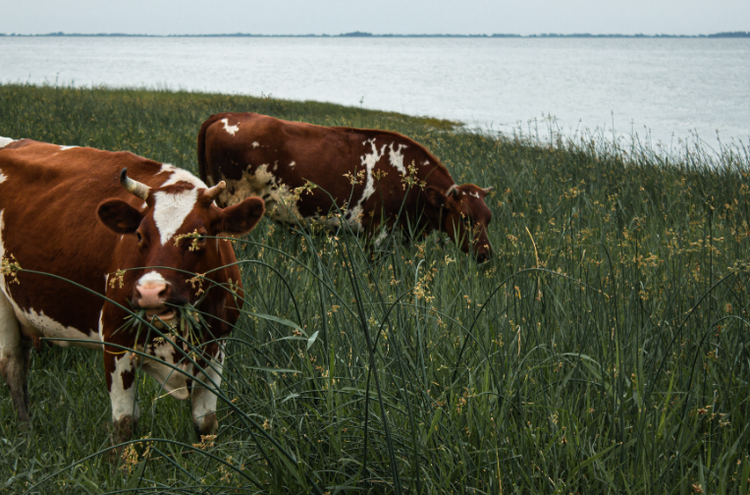
|
Something I constantly am reminding myself and my family of is that farms are for the people, not people for the farm. There is, regardless, some degree of servanthood farmers have to their land. However, it’s important to remember why we are here. 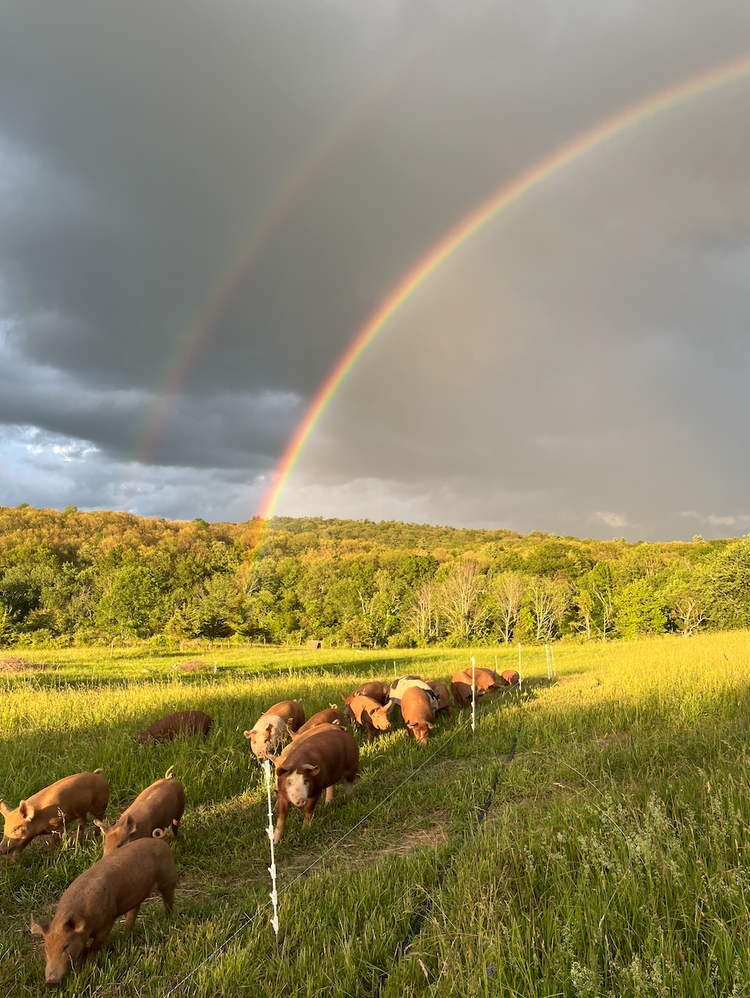 Are we here for the earth, or is the earth here for us? I believe that if when we start with people first, the healthy planet will come. We take care of the planet so that it can take care of us.
Are we here for the earth, or is the earth here for us? I believe that if when we start with people first, the healthy planet will come. We take care of the planet so that it can take care of us.
Although this was a newsletter about cows, as they seem to be what the headlines care about these days, our pigs have a similar case to be made in regards to their ecological benefit, as the up-cyclers of waste to pork. This is why we have recently started pursuing organic supply chain wastes to feed our hogs. We’ve started with spent grains— the waste product of local breweries who use organic, NY-grown barley. The hogs love it!
We still have just a few spots left for our August hog harvest. If you’ve been putting it off, now’s the time to reserve your hog today!
If you ever have any questions, want to chat, or are interested in seeing our operation first hand, please don’t hesitate to give us a call or drop us an email!
Bennett & the Northaven Pastures team